Choosing the finest content management system (CMS) for website development becomes crucial for organizations looking to create and maintain a strong online presence.
Building and maintaining your website requires the use of a content management system (CMS). It supports content creation and management for company owners, particularly those with less programming experience.
A CMS system has already proven beneficial for over 76 million websites. You may create a strong website and attract visitors by working with a reputable website development company and selecting an appropriate content management system.
It takes effort to choose the ideal content management system (CMS) for website construction, though, as there are hundreds of them available. Selecting a CMS that fits your budget and company objectives is essential since they all have various advantages and disadvantages.
To make your work easier, we have put up a list of the most widely used CMSs. We will cover the best CMS systems as well as important aspects to keep in mind while making your selection.
Read the top website development companies for startups!
Content management system: what is it?
Software known as a content management system (CMS) enables non-technical individuals to generate, administer, and edit material for websites. Stated simply, you can make a website using a content management system (CMS) without having to know how to code or even start from scratch.
Nowadays, most content management systems are fairly customizable. Though some, like eCommerce and Magento, are made especially for a certain use case, the most popular content management systems may be applied to nearly any kind of website development.
Also read: Magento, Shopify, WooCommerce, which is the best e-commerce platform?
Top 10 CMS Platforms Needed In Website Development
You can quickly manage, edit, and publish material on your website with the use of a content management system. The top content management systems (CMSs) for website creation are listed below, and you may use them to effectively manage the material on your website.
WordPress
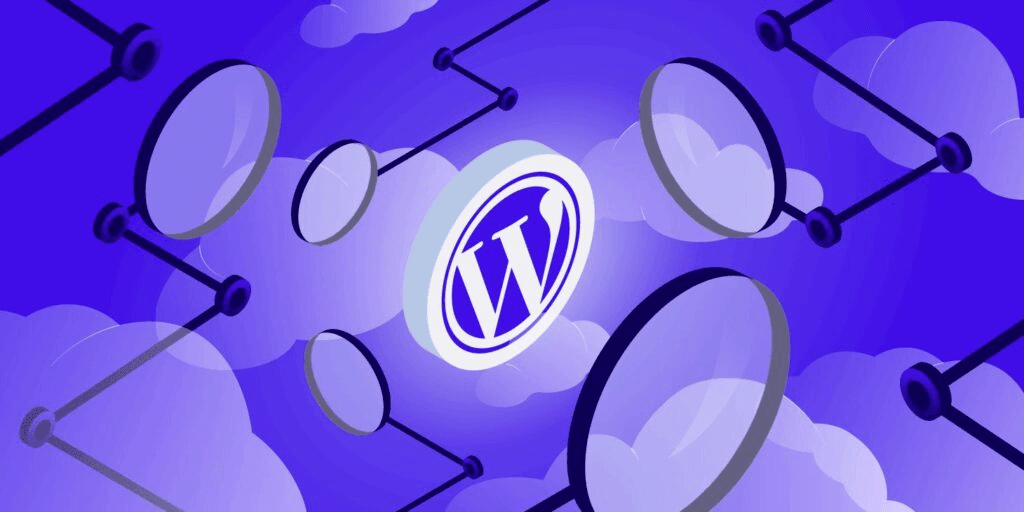
With WordPress being utilized by around 43.2% of all websites, it is the most popular content management system. WordPress software is available as open-source and is well known for being flexible and scalable. The more than 58,000 WordPress plugins in its library let users create any form of website.
- Most websites, ranging from straightforward personal blogs to intricate e-commerce platforms
- Core software is free, while managed WordPress hosting starts at $2.99 per month.
Without requiring complex technical knowledge, WordPress for web development users may construct anything from a small personal blog to a sizable eCommerce site thanks to its more than 58,000 plugins.
The user-friendly dashboard makes managing material easier, and the integrated media management tools and user roles facilitate the process of optimizing your website, regulating access, and incorporating media that is rich in information.
Choosing Managed WordPress Hosting makes it easier for novices to get started and helps automate security, backups, and upgrades. You can automatically produce content and solve mistakes using Hostinger’s AI tools, such as the WordPress AI Troubleshooter and AI Content Creator. This helps you maintain a fluid, interesting website no matter what your technical background is.
Continue reading the top 8 reasons why you should outsource WordPress theme development.
2. Joomla

Over two percent of websites are powered by the open-source CMS Joomla. Compared to other CMS platforms, its core software offers more functionality, such as multilingual support. Non-technical users, however, might require assistance locating the initial Joomla settings.
- Intricate site architecture and multilingual websites
- Core software is free, while hosting starts at $3.99 a month.
Because Joomla is a CMS that supports several languages by default, it’s a great option for websites that cater to a worldwide clientele.
In contrast to other CMS platforms, Joomla comes with sophisticated capabilities right out of the box, such as user role management and banner management tools, which simplify the process of managing and organizing material on intricate websites.
Joomla could have a more difficult learning curve for novices than some of the other systems on our list.
3. Drupal

Its flexible API design is meant for professional web development and supports a range of digital platforms. Drupal optimizes its built-in features for better security and speed, in contrast to WordPress and Joomla. Drupal-powered websites get more traffic than those powered by rival content management systems.
- Large-scale websites and more experienced
- Core software is free, while hosting starts at $3.99 a month.
Drupal is a well-liked content management system (CMS) by developers in charge of big websites because of its excellent performance and security records.
Drupal has more sophisticated content management tools than WordPress or Joomla while being more complicated. They assist you in handling multilingual material, developing unique content kinds, and making sure your website functions well even with heavy traffic.
For novices who are eager to learn and have access to technical help, Drupal allows you to scale up and perform well.
Read the 20 best Drupal development companies in the USA
4. Abode Commerce (AKA Magento)
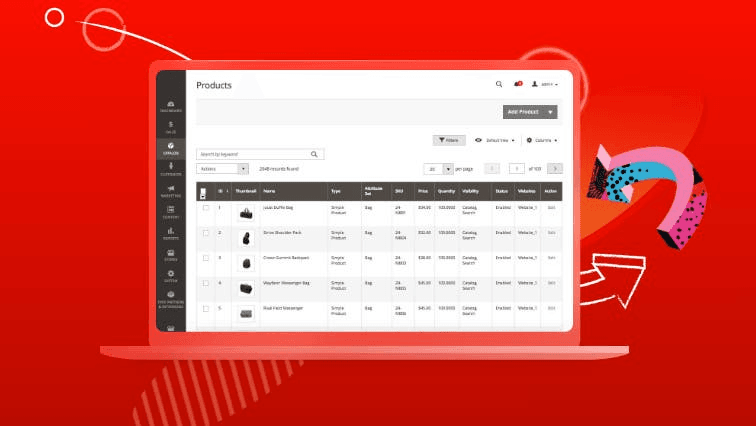
Among the top eCommerce systems is Magento. To improve all kinds of eCommerce sites, the CMS software prioritizes security, SEO, and personalization. The magento commerce platform is capable of supporting many orders and items due to its capacity to serve larger e-commerce sites
- Extensive e-commerce enterprises
- The cost is available upon request
Large online retailers and businesses are the target market for Adobe Commerce, formerly known as Magento.
Features like multi-currency possibilities, linguistic support, and multi-store administration are included with the platform. Large product catalog management and heavy traffic handling are its best uses.
Despite the often complicated initial setup, Adobe Commerce’s scalability makes it ideal for companies that are expanding quickly. To improve the user experience, the platform also offers sophisticated SEO capabilities, smartphone adaptability, and a safe checkout procedure.
5. PrestaShop

PrestaShop is another popular content management system for small-to medium-sized eCommerce businesses. This online store management platform’s extensive feature set and active community make it incredibly flexible. Its comprehensive interface makes it easy to enter and monitor items as well.
- Small to medium-sized eCommerce shops
- Core software is free, while hosting starts at $3.99 a month.
If you want to know some cost-effective ecommerce app development solutions for your startup business, here is the perfectly aligned blog for you!
With features including product management, payment gateways, and SEO tools, PrestaShop is an easy-to-use content management system (CMS) for building online businesses.
Without requiring technical knowledge, novices can effortlessly monitor orders, add new goods, and manage inventory thanks to its user-friendly interface.
Because the platform is flexible, you may increase its capabilities by adding more modules and themes, albeit some of them will cost you more money.
6. Hubspot CMS
One of the best CMS choices for building a website without the need for frequent revisions and updates is HubSpot CMS. Additionally, because of this platform’s user-friendly capabilities, anybody without technical skills may create a website, making it ideal for novices. Reach and engagement are additionally raised by its excellent integrated sales and marketing solutions.
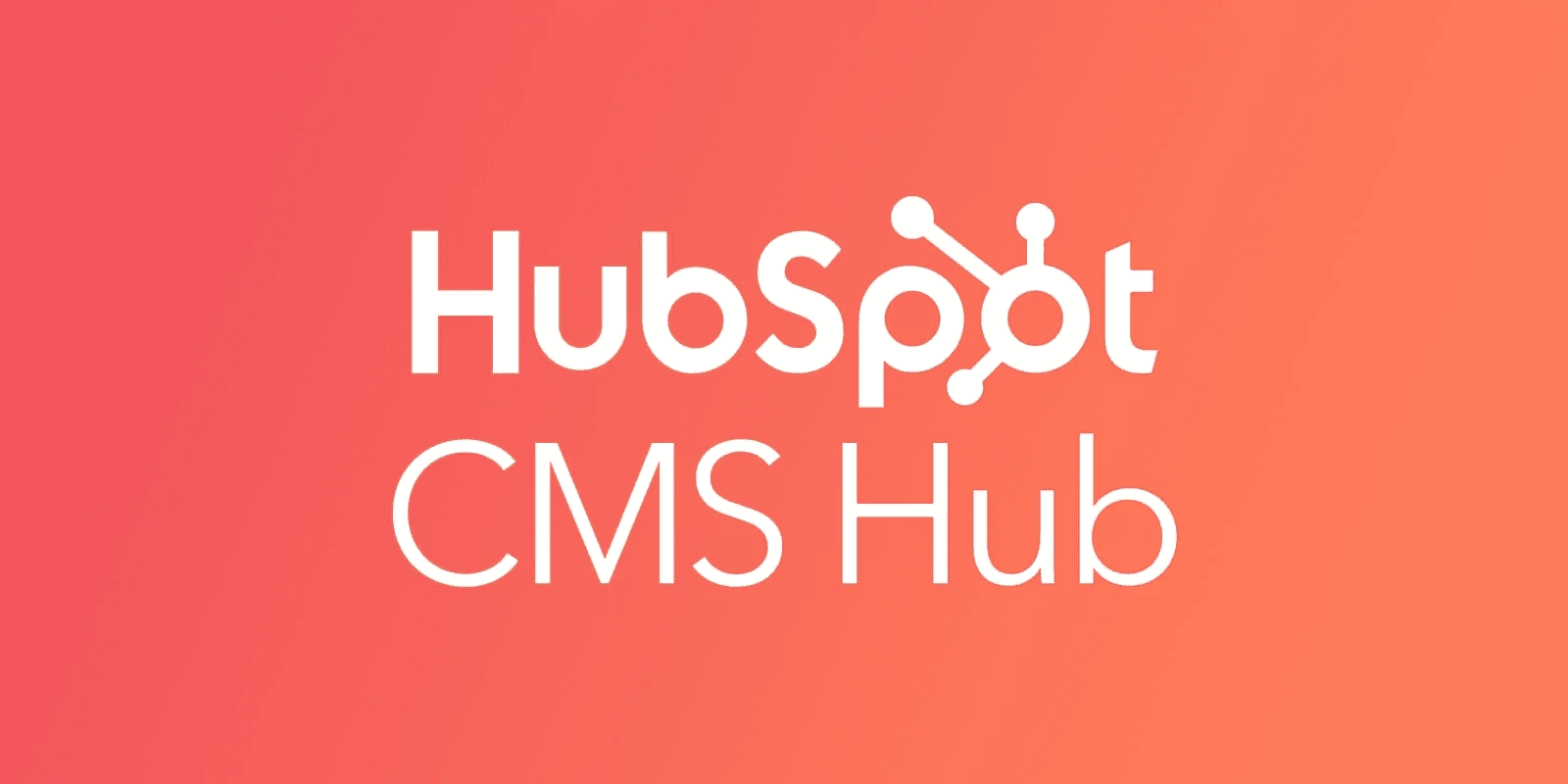
- Best for marketing-focused websites
- Pricing starts at $15 per month for subscription plans; freemium options available.
HubSpot CMS is perfect for companies looking to increase their online presence since it integrates content management with marketing and sales capabilities.
Because of its user-friendly drag-and-drop editor and integrated SEO suggestions, even those without technical experience may easily improve their content.
7. Grav

Grav is an easy-to-use CMS platform used by a software development company that operates on files. Compared to other CMS software, the platform is lighter and speedier because to its non-traditional database. Nevertheless, using its graphical interface calls for some technical expertise.
- Ideal for: developers that favor CMS files in a flat format
- Cost: Free of cost
Grav is a flat-file content management system (CMS), which means it doesn’t need a database, making it incredibly quick and light.
Grav provides an easy-to-use admin interface that makes managing content simple even for beginners. For customers who want a basic yet configurable website without the hassles of a database-driven content management system, this is the perfect option.
Because of the platform’s modular nature, developers may add functionality as needed and grow it with flexibility.
8. Strapi
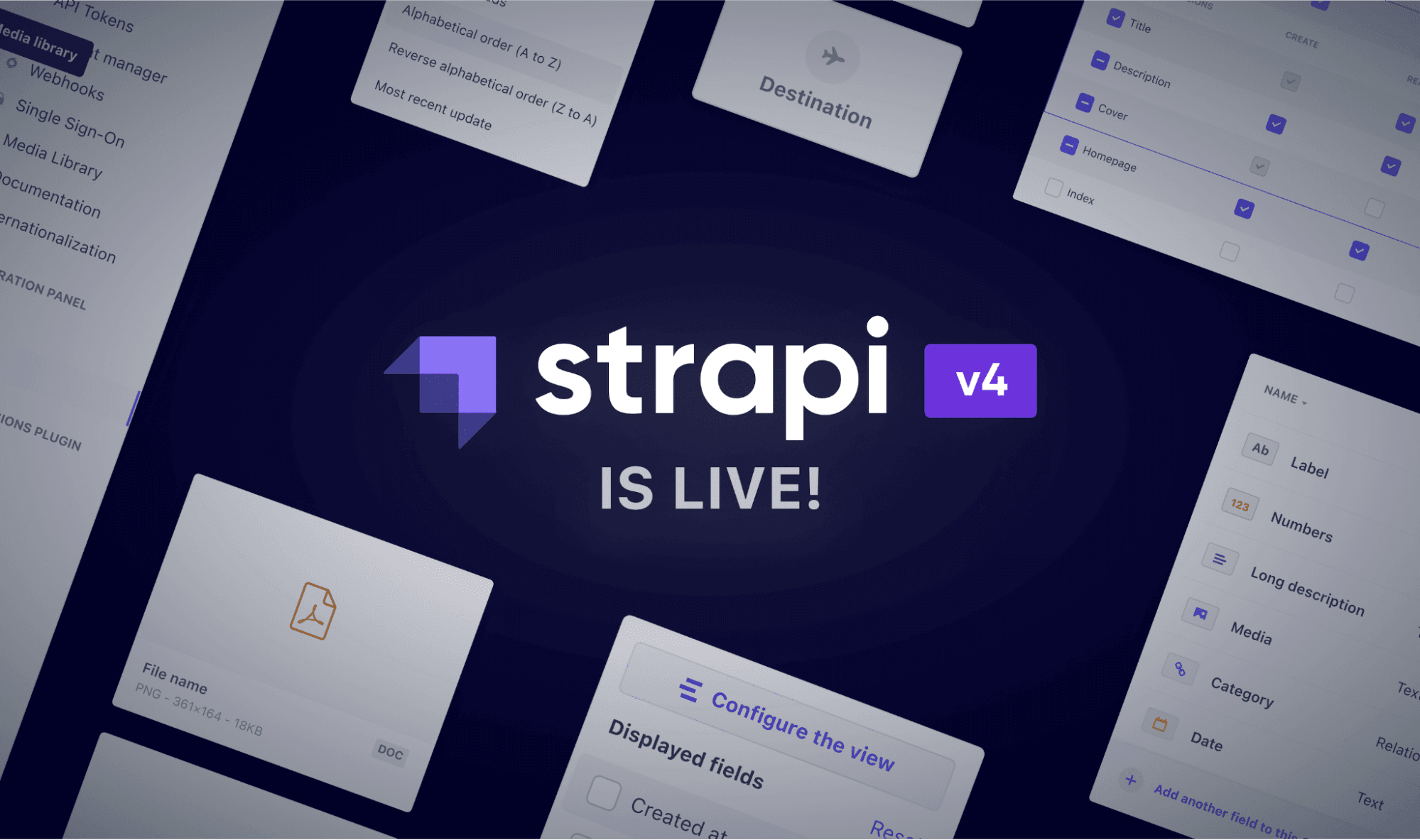
With the open-source headless CMS Strapi, developers have complete control over the administration and delivery of content.
- Ideal for: developers looking for a headless content management system
- Pricing: self-hosted options are free, while premium plans start at $29 per month.
For developers creating websites or apps that need to deliver information across several platforms, it’s a fantastic choice. Beginners will find the admin panel easy to use, but this platform comes alive when you utilize it to build unique APIs for content delivery.
Strapi is an excellent option to take into consideration for those who want scalability and flexibility.
9. OctoberCMS
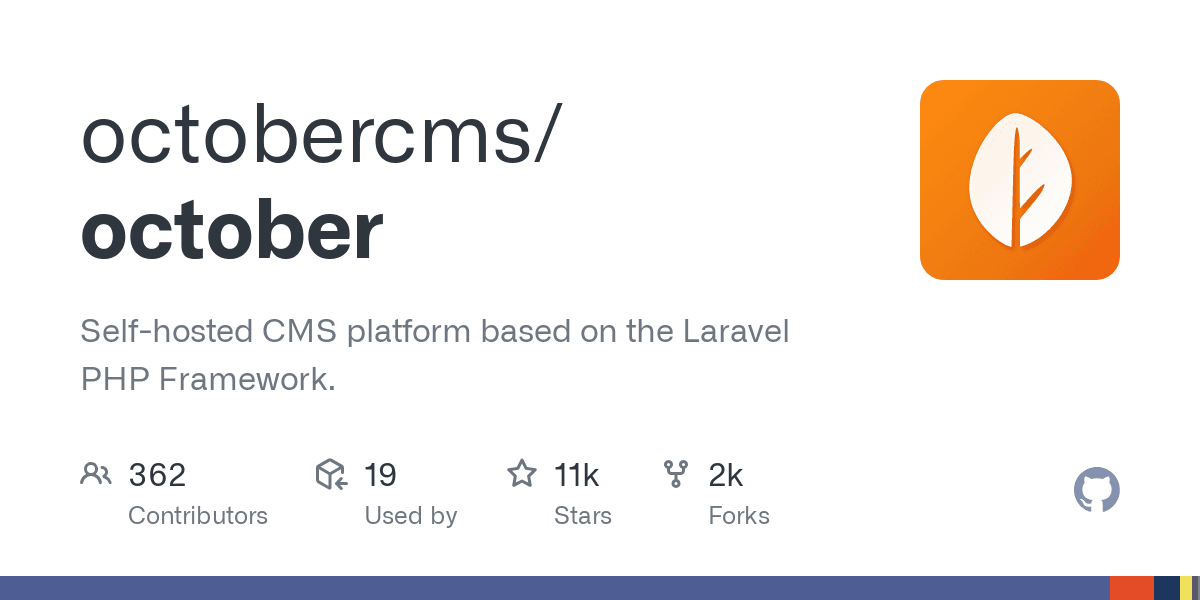
OctoberCMS is a developer-friendly platform with extensive flexibility and control over website content, built on the well-liked Laravel framework.
- Ideal for: developers searching for a CMS built on Laravel
- Pricing: pro licenses start at $29 per project, while core software is free.
While non-technical users may easily manage pages and posts using a simple, clean admin interface, developers can quickly construct unique content kinds.
OctoberCMS is a versatile choice for a range of website kinds since it is modular, allowing you to add plugins to expand its capabilities.
10. Wix

Wix is a well-known cloud-based website builder that is all-in-one and provides a simple and intuitive approach to construct websites. Without knowing how to code or design, people may construct stunning, useful websites using its drag-and-drop interface.
Established in 2006, Wix has grown to be one of the top website builders for small business, catering to millions of customers globally.
- Because of Wix’s well-known simplicity of use, even people without a background in technology or design may utilize it.
- Plans for websites start at $12.50 per month.
Wix has been used to create over 11.5 million websites, one of which is Seven Grams Caffe, a bakery and coffee establishment.
How to Choose The Best CMS Platform For Website Development?
Costing
There are several content management systems available, some of which are free to use and open-source. For others to utilize them, there is a cost that must be paid. You must pay for hosting in order to utilize the greatest open-source CMS. Your total website development costs might be greatly impacted by these CMS’s price structure.
SEO-Friendly
The platform’s SEO friendliness should also be taken into account when deciding if it’s the finest CMS for developing websites. Make sure the CMS platform you choose has the necessary capabilities to improve your website’s search engine ranking.
Individualization
Although customization is not available in all CMS website creation solutions, it is a nice feature when selecting the appropriate platform. The content management system should have the appropriate plugins and themes installed in order to enhance website functionality, optimize performance, and raise conversion rates.
Safety
Especially if it will store a lot of user data, this is one of the most important factors to take into account when selecting the finest CMS for website construction. While security is handled for you by some of the best CMS systems, it is your duty to others.
Utilization
No matter how sophisticated, if your website’s content management system is difficult to use or requires extensive development experience, it cannot be the finest CMS for website creation. Make sure the CMS platform advances your company toward its aims and aligns with business goals.
Let DianApps Help You Build Your Business With the Best-in-the-Industry CMS Platform
It takes work to investigate the finest content management system (CMS) for managing and developing websites, especially with so many alternatives available. Still, a trustworthy web development firm can assist you in choosing the best CMS for your business.
Our professionals at DianApps have over 6 plus years of professional expertise in website development and design solutions, and twe can help you select the ideal content management system.
Additionally, we have a lot of experience creating immersive websites that offer smooth website design services.
Our specialists are capable of creating reliable web applications in addition to creating websites thanks to their excellent web application development services. We therefore have your back whether you have a fantastic concept or wish to improve your current website.
Consult our specialists and boost your digital presence with a great online solution.
Why choose DianApps? Read the blog to find out!


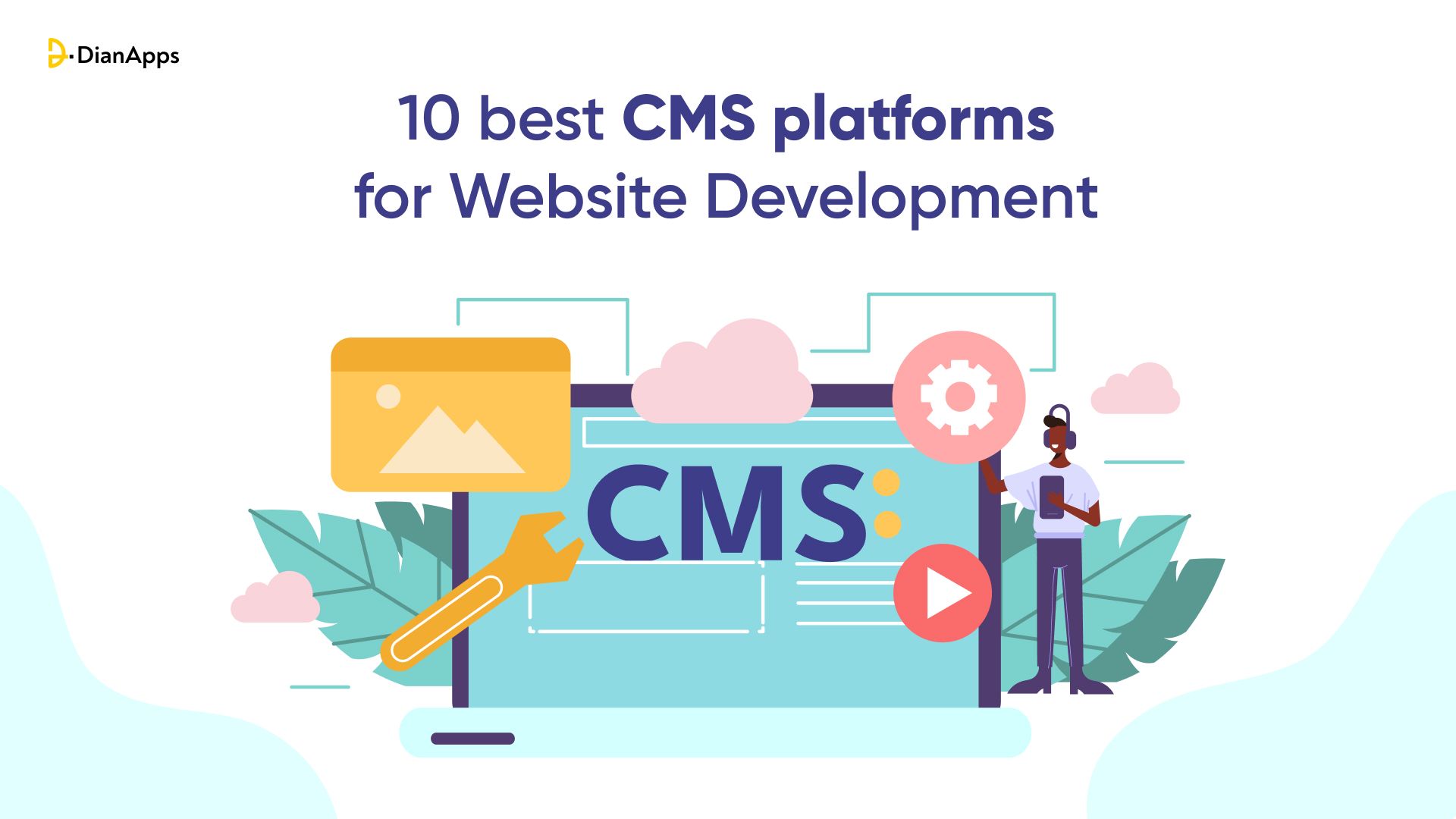







Leave a Comment
Your email address will not be published. Required fields are marked *